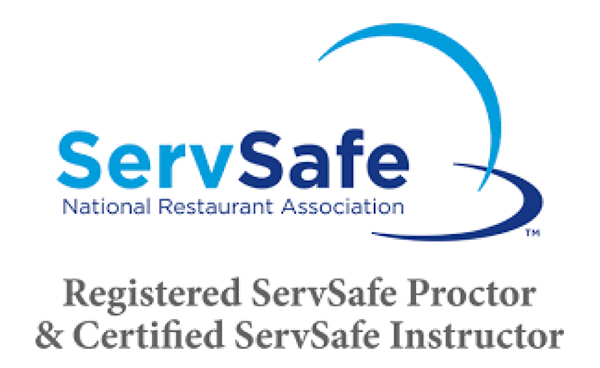The Role of a ServSafe Food Manager and Its Importance
In the fast-paced and ever-evolving world of the food industry, ensuring the safety and quality of the food served is of paramount importance. A ServSafe Food Manager plays a pivotal role in upholding these standards, safeguarding public health, and maintaining the reputation of establishments that serve food. In this overview, we will delve into the responsibilities and significance of a ServSafe Food Manager in the foodservice industry.

Role of a ServSafe Food Manager:
A ServSafe Food Manager is an individual who has successfully completed the ServSafe Food Protection Manager Certification examination. This certification is widely recognized in the foodservice industry as a mark of proficiency in food safety practices and principles. The role of a ServSafe Food Manager encompasses several key responsibilities:
- Knowledge of Food Safety Regulations: A ServSafe Food Manager is well-versed in local, state, and federal food safety regulations. They understand the requirements and standards that must be met to ensure the safe handling, preparation, and service of food.
- Supervising Food Handling: Food managers oversee the food handling processes, including receiving, storage, preparation, cooking, and serving. They ensure that proper hygiene practices are followed at each step to prevent contamination and foodborne illnesses.
- Training and Education: Food managers provide training and education to staff members regarding food safety practices. They ensure that employees are aware of proper sanitation procedures, temperature control, and hygiene guidelines.
- Monitoring and Inspection: Food managers regularly monitor the kitchen and dining areas to ensure compliance with food safety protocols. They conduct inspections to identify potential risks and areas for improvement.
- Crisis Management: In the event of a foodborne illness outbreak or any food safety-related issue, the ServSafe Food Manager plays a critical role in implementing crisis management procedures. They identify the source of the problem and take corrective actions to prevent further harm.
The Importance of a Certified ServSafe Food Manager:
The presence of a ServSafe Food Manager in a food establishment holds immense importance for several reasons:
- Public Health Protection: The primary goal of a food manager is to protect public health by preventing foodborne illnesses. Their knowledge and oversight help minimize the risk of contamination, ensuring that the food served is safe for consumption.
- Legal Compliance: Food establishments are subject to various health and safety regulations. A certified food manager ensures that the establishment adheres to these regulations, avoiding legal complications and potential fines.
- Reputation and Customer Confidence: Maintaining a high standard of food safety enhances the reputation of the establishment. Customers are more likely to trust and patronize places that prioritize their well-being by following proper food safety practices.
- Employee Training: Food managers educate and train employees, empowering them with the knowledge and skills to handle food safely. Well-trained staff members contribute to a culture of food safety within the establishment.
- Risk Mitigation: By proactively identifying and addressing potential hazards, food managers mitigate the risk of foodborne illness outbreaks, which could lead to negative publicity and financial losses.
In conclusion, a ServSafe Food Manager is a linchpin in the foodservice industry, ensuring that food is prepared and served with the utmost care and adherence to safety standards. Their expertise, oversight, and dedication to food safety contribute significantly to the well-being of consumers, the success of food establishments, and the overall integrity of the industry.

